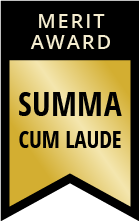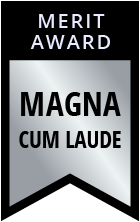Oral
Emerging Contrasts in Neurofluids
ISMRM & ISMRT Annual Meeting & Exhibition • 10-15 May 2025 • Honolulu, Hawai'i

| 16:00 |
Introduction
Laura Lewis
|
|
| 16:12 |
 |
0245. Bidirectional
BOLD-CSF coupling using sagittal BOLD imaging with additional
saturation slab for glymphatic function assessment

E. Roefs, I. Eiling, N. Fultz, L. Hirschler, M. van Osch
Leiden UMC, Leiden, Netherlands
Impact: Interest
in BOLD-CSF coupling is increasing in clinical studies as a
measure of brain clearance efficiency. We propose a new
bi-directional sagittal approach that could give more robust
BOLD-CSF coupling and later potentially quantitative
bi‑directional CSF-flow extending on modelling approaches.
|
| 16:24 |
 |
0246. Anesthetics
Modulate Cerebrospinal Fluid Efflux Pathways in Mice by Changing
the Perineural and Perivascular Spaces

H. Ge, X. Gu, S. Tan, B. Jiao, Q. He, L. Zhang, R. Bai
Key Laboratory of Biomedical Engineering of Education Ministry, College of Biomedical Engineering and Instrument Science, Zhejiang University, Hangzhou, China
Impact: Different anesthesia protocols could affect the
CSF outflow pathways, and the CSF volume changes under
different anesthesia protocols are the potential mechanism.
|
| 16:36 |
 |
0247. Three-dimensional
T1 measurement in the cerebrospinal fluid using the SPACE-FLAIR
sequence

E. Biondetti, S. Pomante, S. Censi, D. Di Censo, E.
Bliakharskaia, M. Carriero, F. Graziano, A. Caporale, A.
Chiarelli, R. Wise
University "G. D'Annunzio" of Chieti-Pescara, Italy, Chieti, Italy
Impact: We propose a high-resolution 3D protocol for
investigating relative differences in T1 across the cerebral
CSF due to tissue-CSF water exchange. This methodology may
help characterise processes of waste removal from the brain
to which CSF is thought to contribute.
|
| 16:48 |
 |
0248. SORDINO
for mapping glymphatic dynamics and choroid plexus efflux
S. Lee, T-W Wang, M. MacKinnon, S. Song, S. Ozarkar, M.
Shen, B. Philpot, Y-Y Shih
The University of North Carolina at Chapel Hill, Chapel Hill, United States
Impact: This study pioneers the use of SORDINO MRI, a
silent, distortion-free, motion-insensitive, and efficient
T1-sensing sequence, to map glymphatic dynamics or choroid
plexus efflux, enabling functional segmentation of brain
ventricular spaces and the choroid plexus for studying brain
fluid dynamics.
|
| 17:00 |
 |
0249. Assessing
cerebral microvascular pulsatility using dynamic
pseudo-continuous arterial spin labeling MRI

T. Zhao, J. Tang, M. Gamez, L. Yan
Northwestern University, Chicago, United States
Impact:
We proposed a non-invasive MRI technique to reliably measure cerebral microvascular pulsatility, which fills a significant research gap in research related to brain waste clearance. |
| 17:12 |
 |
0250. Increased
vasomotor waves inverts electro-hydrodynamic drive over
blood-brain-barrier in sleep.
V. Kiviniemi, T. Väyrynen, H. Helakari, V. Korhonen
OFNI, Univeristy of Oulu, Oulu, Finland
Impact:
Sleep induces vasomotor waves that start to drive both brain water and BBB signals in the same posterior/middline areas in sleep adding further proof to the previous findings of increased solute transport in parasagital areas. |
| 17:24 |
 |
0251. Probing
Glymphatic Exchange Between CSF and Tissue Using Long-TE
Arterial Spin Labeling: Simplified Model and Shorter Scan Time

Z. Wang, Z. Hu, D. Jiang, D. Sankaralayam, H. Fan, J.
Song, Y. Gou, W. Shi, Y. Ge, H. Lu
Johns Hopkins University, Baltimore, United States
Impact: In this study, we developed a framework to
measure CSF signal fraction in ASL MRI, which may provide a
physiological index to evaluate tissue CSF dynamics and
brain waste clearance system.
|
| 17:36 |
 |
0252. 3-Tesla
Parasagittal dural space (PSD) T2 relates to PSD volume and
correlates with diurnal circadian oscillation during wakefulness
K. Hett, M. Leguizamon, C. McKnight, A. Song, C. Han, A.
Dubois, M. Curtin, M. Garza, P. Trujillo, C. Considine, D.
Claassen, M. Donahue
Vanderbilt University Medical Center, Nashville, United States
Impact:
The T2 relaxation times of water in the parasagittal dural (PSD) space were quantified over the circadian cycle of wakefulness at using a long-TE multi-echo turbo-spin-echo sequence. PSD T2 was 240.6±57.2 ms on average and increased from morning to evening. |
| 17:48 |
 |
0253. Visualization
of Glymphatic Route on the Rat Cerebral Surface Using Direct
Injection of 17O-Labeled Water and Proton MRI
H. Kameda, T. Fujii, N. Kinota, D. Kato, Y. Bito, M. Tang,
K. Kudo
Hokkaido University Hospital, Sapporo, Japan
Impact: Using the technique of local subarachnoid
injection of 17O-labeled
water and an optimiszd proton MRI method, we were the first
to visualize CSF inflow pathways in the cerebral cortex as
distinct signal changes.
|
The International Society for Magnetic Resonance in Medicine is accredited by the Accreditation Council for Continuing Medical Education to provide continuing medical education for physicians.